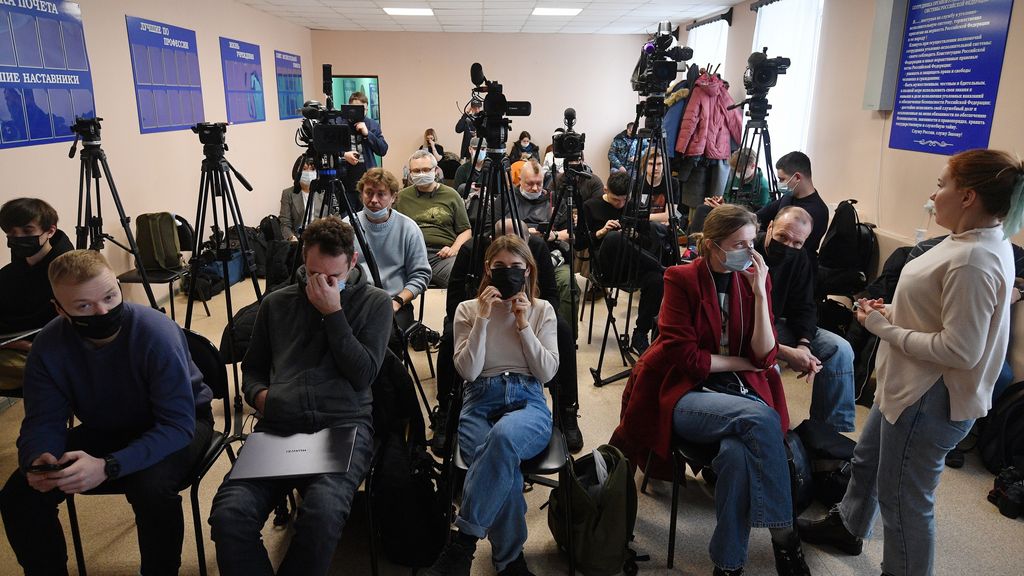SIPA
NOS News•
-
Christian Bowie
external editor
-
Christian Bowie
external editor
Journalist Olga Motovina watches a pro-war demonstration in Irkutsk with a colleague when she is arrested. It’s September 23, a few days after Putin’s “partial mobilization” began. “About ten officers surrounded us. Our hands were tied, and there was shouting,” Moitovina told NOS by phone. “It all felt so threatening.”
According to the police, they put up anti-war leaflets during the demonstration – “defaming” the military has been banned since the invasion. Motofina and her colleague are interrogated at the police station but they refuse to make confessions. After the lawyers insisted, they were released after three hours. Fearing what awaits them, Motovina and her colleague flee Russia the next day.
Motovina’s story is typical of the far-reaching repression in Russia since the invasion. Demonstrating is almost impossible, life is hard for activists and journalists can be fined if they write about the war in Ukraine. Within a week, the screws will be tightened with new legislation.
New laws
On December 1, tougher restrictions will go into effect for foreign journalists covering Russia and the war in Ukraine. on me List scored 61 points which should not be discussed – such as, for example, the training of mobilized men and the morale of the army.
The “foreign agents” rules also apply to anyone who is under “foreign influence.” It is not clear what that would mean objectively. Russia has used the “foreign agent” designation in recent years to silence critics — for example, they have to contend with strict financial oversight. In addition, the Ministry of Justice will publish the personal data of “foreign agents” on a website.
Due to arbitrariness, Motofina believes that she cannot return for the time being. Since the beginning of the war, she has been writing about the war in Ukraine with Lyudi Bajkala news website without saying a word. They published articles on civilian casualties in Kharkiv and on men dying in Ukraine. I talked about that earlier too with NOS. In April, their website was already blocked by Russian media regulator Rozkomnadzor – Russians need a VPN to read their work.
A few days after the arrest, a Russian intelligence agent appeared in the editorial office with questions about the journalists. Motovina and her colleague had already fled by that time. The officers also knocked on its doors. “We’ve been warned for some time that the authorities have drawn attention to us. We didn’t think so before. But now it’s clear that this wasn’t made up.”
We have been warned for some time that the authorities have drawn attention to us,
Motovina reports from Armenia on what is happening in Russia – like the hundreds of refugee journalists who continue their work abroad. Although she would like to return, lawyers tell her it is not safe. “In the end, you don’t know what they will use against you.” Recently, Motovina says, a journalist from Yakutia was fined for speaking about the “front” in a television interview. The court said that this was not allowed because there was no war in Ukraine, but a “special military operation”.
And the journalist predicts that with the tightening next week, the crackdown will not be radically different. “Actually, you are not allowed to write anything about the war at all,” says Motovina. “Those in power freely interpret existing legislation when it is in their interest.”







